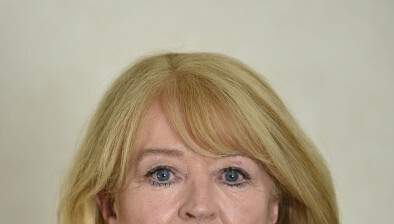Court of Appeal: Appeal in dancefloor slip and fall case dismissed

The Court of Appeal has dismissed an appeal against a €91,000 High Court award to a patron who slipped on a wet dancefloor in Charleville Park Hotel during a wedding reception.

About this case:
- Citation:[2023] IECA 268
- Judgment:
- Court:Court of Appeal
- Judge:Mr Justice Seamus Noonan
Delivering judgment for the Court of Appeal in November 2023, Mr Justice Seamus Noonan opined: “The fact that the trial judge did not expressly refer to the issue of contributory negligence does not mean that he did not consider it. His findings were clearly consistent only with there being no contributory negligence on the part of the plaintiff and it was in my view unnecessary for him to explicitly state that he was in fact finding that there was no contributory negligence. This would, in the circumstances, be no more than a statement of the obvious.”
Background
The respondent was injured in 2015 when she slipped and fell on a wet part of the dancefloor at the appellant’s hotel whilst attending a wedding. The plaintiff gave evidence that two meals were served and that she had changed into flip flops when the dancing commenced around 8pm.
The respondent described her accident has having occurred at around 2am when leaving the dancefloor, and stated that she had four to five bottles of beer over the course of the evening. The respondent also alleged that the barman was the only one of the appellant’s employees present in the function room throughout the evening.
The High Court found in the respondent’s favour finding that there was no system of checking, monitoring or cleaning spillages on the dancefloor, and awarded general damages of €91,000.
The appellant appealed the judgment on quantum and liability. The respondent cross-appealed on the basis that the award should have been higher to account for inter alia the severity of scarring, swelling and psychological stress she experienced as a result of the injury.
The Court of Appeal
Mr Justice Noonan opined that the defendant’s complaint about the trial judge’s finding of negligence was “difficult to fathom in the light of the extremely clear evidence given by the plaintiff and her witnesses… each in turn said the floor was wet. The defendant has advanced absolutely no reason why the judge was not entitled to accept the evidence of the plaintiff’s witnesses and reject that of Mr Finn.”
Noting that the trial judge’s finding was clearly open on the patently credible evidence, the Court of Appeal considered that the Hay v O’Grady [1992] 1 IR 210 principles could not be interfered with.
The appellant’s second complaint alleged that the trial judge failed to consider the issue of contributory negligence and that there was clear evidence of same on part of the plaintiff, who it alleged was intoxicated.
Mr Justice Noonan emphasised that “counsel seemed to consider that the fact that the plaintiff admitted drinking a number of bottles of beer was in itself evidence of negligence. That submission appears to me to be quite misconceived. The mere fact of having a few drinks is not evidence of negligence. As I have already noted, the plaintiff appears to have consumed in or around two litres of beer over the course of a nine hour period during which she had one substantial meal and a subsequent lighter meal. That, without more, could not conceivably amount to evidence of intoxication to such a degree as to be incapable of taking care for her own safety.”
The judge continued: “The fact that the trial judge did not expressly refer to the issue of contributory negligence does not mean that he did not consider it. His findings were clearly consistent only with there being no contributory negligence on the part of the plaintiff and it was in my view unnecessary for him to explicitly state that he was in fact finding that there was no contributory negligence. This would, in the circumstances, be no more than a statement of the obvious.”
The court further considered the appellant’s complaint as to the quantum of the High Court award, noting that the respondent had suffered a significant injury comprising of an ankle and heel fracture which inter alia required surgery, left her walking with a limp and unable to walk long distances or to run after her toddler.
The Court of Appeal noted that before an appellate court can interfere with an award, it must be satisfied that an award is so disproportionate to the award that the appellate court would be inclined to give such as to amount to an error of law as per Rossiter v Dun Laoghaire County Council [2001] 3 IR 578. Observing that the suggestion by the court in Rossiter to the effect that a disparity of 25 per cent may justify an interference, Mr Justice Noonan stated that “in Meehan v Shawcove Limited [2022] IECA 208, I observed that this is not a rule of law or even a rule of thumb to be invariably applied and is simply intended as a rough guide and probably best suited to lower value cases”.
Remarking that the trial judge’s award was “possibly at the higher end and somewhat above what this Court might be inclined to give”, the judge decided that he would decline to interfere. As to the respondent’s cross-appeal, the Court considered that injuries such as possible amputation are also included in the “severe and permanent” category and as such, the factors advanced by the plaintiff did not “take the injury beyond what is, as I have already indicated, a fairly generous award”.
Conclusion
Accordingly, the Court of Appeal dismissed the appeal and the cross-appeal.
Sweeney v Atlantic Troy Limited [2023] IECA 268









